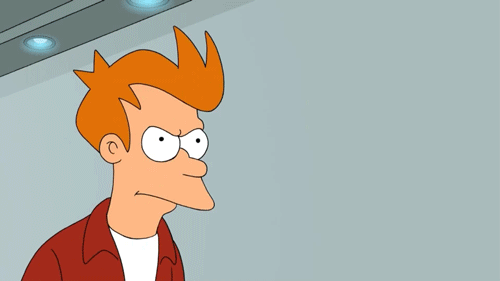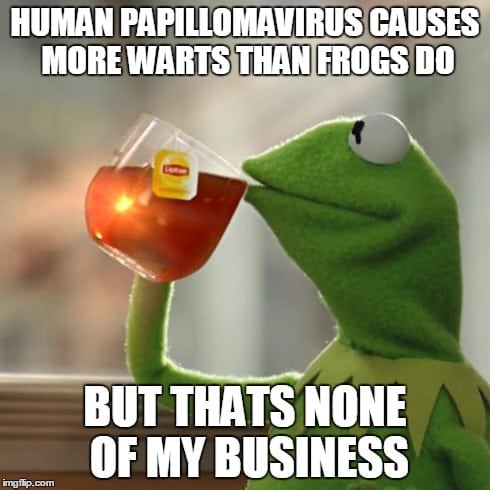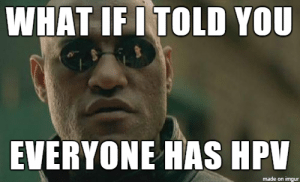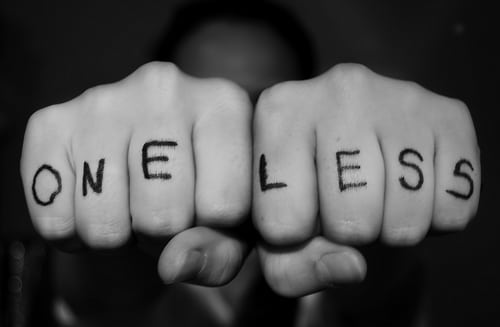Do you remember that commercial with the catchy tag of “one less” and some kick ass girls double dutching? It called for young women to be one less statistic, accompanied by a great beat and a diverse cast of powerful women. Well, which of us knew HPV would be as important as it is today? With our healthcare on the line, we need to wake up to the importance of protecting our bodies against HPV now more than ever.
HPV, What?
You probably have heard these three little letters when testing for STDs before. Why? Human Papilloma Virus, or HPV, is one of the most common STDs. It is so common that one in four people are currently infected in the U.S. right now. That’s roughly 80 million people. Not to mention, 14 million more become infected each and every year. I know, that’s a lot. HPV aso causes 30,700 cancers in men and women annually. Yet, the HPV vaccine can prevent nearly 28,000 cancers from occurring. That’s some good news for you and your sex life.
According to Planned Parenthood, HPV has over 100 related viruses. Again, a lot. Yet, nine out of ten Americans will not develop any health problems from these viruses and they will go away thanks to the ever powerful immune system. That one other person is where things can get a little risky. That last 10% will develop a high risk strain of HPV. High risk strains can lead to genital warts or various types of genital type cancers. This is not something to just brush off.
The Breakdown
Now that you know exactly what HPV is, let’s break it down. The first, and arguably the most important, fact is that almost every sexually active man and woman will have HPV once in their life. It’s true and that is why we desperately need to take a second to learn a thing or two. The silver lining? Most of those infected won’t even notice because most cases disappear after two years. But because it is just as common as the cold, it is important to protect yourself.
Why is it so common? Well, HPV is transmitted through skin to skin touching. This means you are still in the line of fire without any penetration or ejaculation. Some uneducated friends might suggest that you will get HPV from toilet seats, pools, hot tubs, sharing utensils, or simply holding hands. These are myths. Direct vaginal, oral, or anal contact, in addition to shared sex toys, are the ways HPV is transmitted.
We know STDs can pass quickly due to the amount of partners one has without being tested, but how can we defend ourselves? Unfortunately, the only 100%, incredibly sure way to guard yourself from HPV is to avoid any and all sexual contact. I don’t know about you, but that is not an ideal option for myself. The next best thing is to a get a HPV vaccination like Gardasil. I will explain more later, but keep this option high on your list.
You can also protect yourself from HPV and other STDs by using condoms for vaginal and oral sex. In addition, regularly schedule pap and HPV tests. I know it sucks going to the doctor’s office every three years, the recommended cycle for pap testings, but you’ve only got one body. Let’s take care of it. P.S. Steer clear of tobacco, too. Studies show that it increases your risk for developing HPV related cancers.
“Be One Less”
Now back to Gardasil like I promised. The Gardasil vaccine is actually three separate shots that take about six months to fully conduct and protect. (Note: Children ages nine to fourteen may receive the vaccine in a schedule of either two or three shots, depending on the length of time between doses.) The complete dose of Gardasil will not protect you from all 100+ HPV strains. It does guard you against the nine specific HPV strains that are known to cause genital warts and cancers of the cervix, anus, vulva, and vagina. I will most definitely take a shot for that!
When should you get vaccinated? The recommended age is eleven or twelve for both boys and girls so they are fully protected before becoming sexually active. If you are already sexually active, you can still get vaccinated, but talk with your doctor first. If you already have HPV, the vaccine will not treat it, but can protect you from becoming infected with other strains.
The Nitty Gritty
Now that I have hopefully convinced you to love yourself a little extra, I am sure you are wondering how to get this process going. Planned Parenthood, health centers, clinics, and health departments offer HPV vaccinations. Many health insurance companies cover HPV vaccines, so do not be scared to ask. If you aren’t covered, Gardasil offers assistance programs that may be helpful to stay far away from the STD. Prices vary on many different factors but can range from $40 a shot to $500. I know it is a lot but you have every right to be healthy, so ask for any suggestions or financial assistance docs may have.
Conclusion
Hopefully you know more now than you did before beginning this article. HPV is totally preventable. We just need to take an extra step to protect ourselves. Chancing genital cancers or warts is not worth the risk for your precious body. You – and your sex life – deserve to be healthy and happy.




